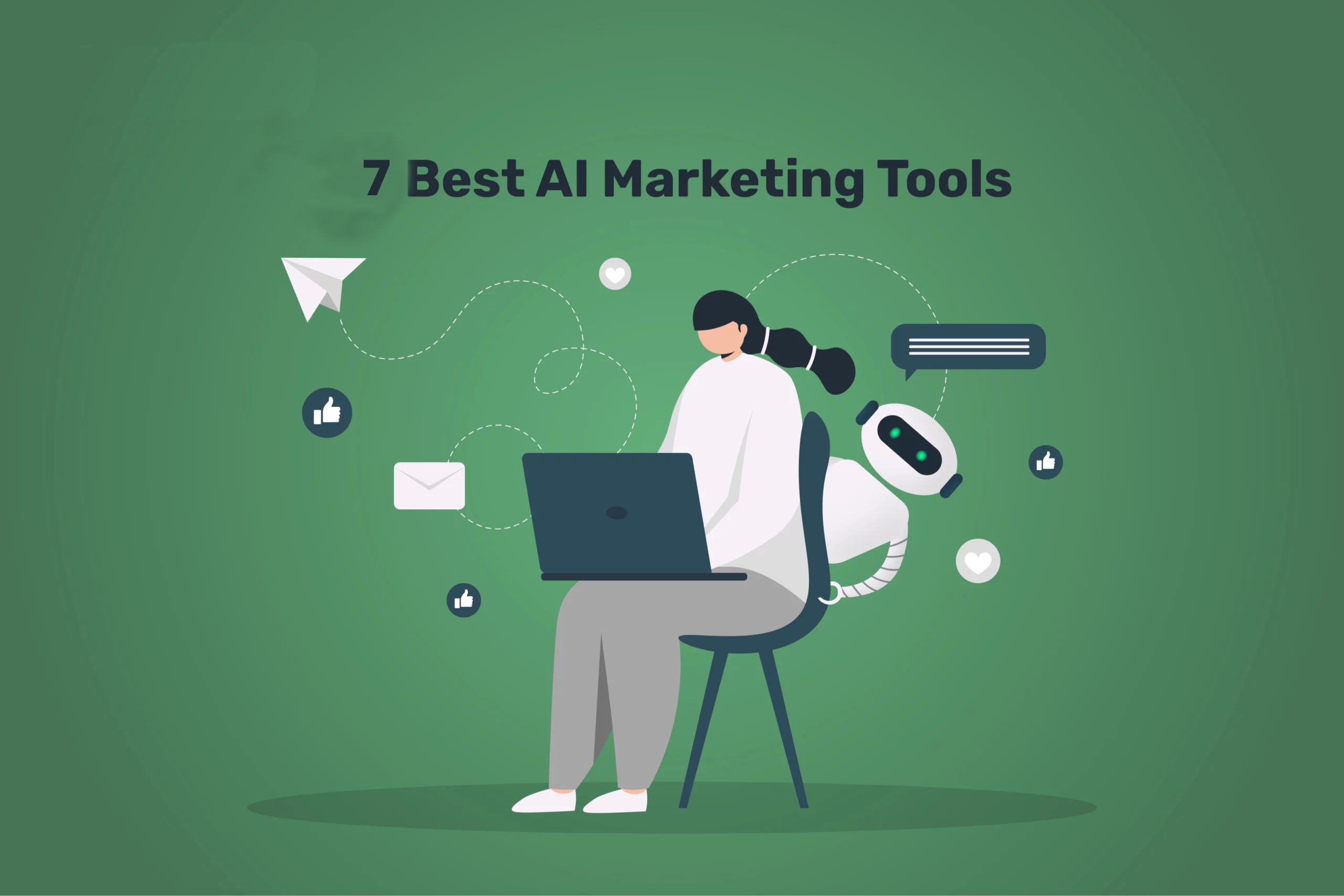Artificial Intelligence, or AI, is a technology that enables machines to think, learn, and make decisions similarly to humans. It is becoming a crucial part of everyday life, especially when using tools like Google Search. Google Search is essential for finding information quickly and easily, allowing us to access vast knowledge at our fingertips.
Whether looking for the latest news, a recipe, or information for a school project, Google Search helps us find what we need in seconds. Integrating AI into Google Search revolutionizes how we search for information online, making the process more intelligent, faster, and efficient.
This article explores the Artificial Intelligence Google Search, shedding light on how AI enhances our ability to find information effectively.
What is Artificial Intelligence?
Artificial Intelligence refers to the capability of a machine to imitate intelligent human behavior. Simply, it is about teaching machines to think and learn from experiences. AI can perform tasks that usually require human intelligence, such as understanding natural language, recognizing patterns, and making decisions.
There are two main types of AI: narrow AI and general AI. Narrow AI, or weak AI, is designed to perform a specific task. For example, systems that can play chess or recommend movies are examples of narrow AI. On the other hand, general AI, often referred to as strong AI, aims to perform any intellectual task that a human can do, but this technology is still in the realm of research and development.
AI mimics human intelligence by analyzing data and learning from it. For instance, when a machine is exposed to much information, it can identify patterns and use them to make predictions or decisions. This learning process allows AI systems to improve over time, becoming more accurate and efficient.
The Role of AI in Google Search
Google utilizes AI to enhance the quality of search results. The company employs complex algorithms to determine how results are ranked and displayed to users. These algorithms are constantly evolving to meet the changing needs of users. One significant AI technology used by Google is called RankBrain. RankBrain is a machine learning-based system that helps Google better process and understand search queries.
RankBrain analyzes the context of a search query and makes predictions about what users might be looking for. This allows Google to provide more relevant search results, even for queries it has never seen before. For example, if someone searches for “best running shoes for flat feet,” RankBrain can interpret the intent behind the query and provide results that match that need, even if the specific phrase was not in the indexed content.
In addition to RankBrain, Google uses various AI technologies to enhance features such as auto-suggestions and spell-checking. These improvements help users find what they need faster and reduce frustration when typing queries.
How AI Understands Search Queries
Understanding search queries is a complex task that requires advanced technology. Natural language processing (NLP) is a branch of AI that focuses on enabling machines to understand and interpret human language. NLP is significant because it allows AI to process and analyze Text, helping it understand user intent behind search queries.

When a user types a question or a phrase into Google, NLP algorithms break down the query into manageable parts, identifying keywords and their meanings. For example, if someone searches for “How to bake a chocolate cake,” NLP helps the AI understand that the user is looking for a recipe or instructions related to baking.
AI interprets user intent by considering the query’s context and structure. This capability improves the accuracy of search results. For instance, if a user searches for “Apple,” AI can determine whether the person is looking for information about the fruit or the tech company based on additional context, such as recent news or user history.
Moreover, AI continually learns from user interactions. When users click on specific search results or provide feedback, AI systems take note of these behaviors to refine their understanding and improve future search results.
Personalization of Search Results
Personalization is another key benefit of AI in Google Search. Google uses AI to tailor search results based on user behavior and preferences. The system collects data about your previous searches, clicks, and interactions when you use Google. This data helps Google provide more relevant results that align with your interests.
For example, if you frequently search for healthy recipes, Google may prioritize similar content in future searches. This personalization makes the search experience more efficient, allowing users to find relevant information without sifting through unrelated results.
However, this personalized approach also raises privacy concerns. Users may worry about how their data is being used and whether their privacy is being compromised. Striking a balance between personalization and privacy is essential for building trust between users and search engines. Google has implemented various measures to handle user data responsibly and transparently.
Voice Search and AI
Voice search is rapidly gaining popularity as more people use smartphones and smart speakers to search for information. AI powers voice recognition technology, enabling devices to understand and process spoken language. This development has changed how we search, making it more convenient for users who prefer talking over typing.
When you use voice search, AI algorithms convert your spoken words into Text and then interpret the meaning behind your request. For example, if you ask, “What’s the weather today?” the AI recognizes the query and provides a relevant response. This process is seamless and quick, allowing users to get information hands-free.
The rise of voice search has also led to changes in traditional search methods. Users are likelier to ask questions conversationally rather than typing keywords. This shift means that search engines must adapt to effectively understand and respond to these natural language queries.
The Future of AI in Search Engines
AI is expected to play an even more significant role in search engines as technology advances. Upcoming trends may include better integration of AI with augmented reality (AR) and virtual reality (VR), allowing users to search for information in new and immersive ways. For instance, users might be able to ask questions and receive information while engaging with 3D models of products or environments.

Artificial Intelligence Google Search
Furthermore, AI advancements may improve predictive search capabilities, where search engines anticipate user needs before they even type a query. This level of foresight could revolutionize the way we access information.
Staying updated with these changes is essential for users and content creators alike. Understanding how AI evolves can help individuals and businesses optimize their online presence and adapt to new search trends.
Challenges and Concerns
While AI brings numerous benefits to search engines, it also poses challenges. One primary concern is bias in AI algorithms. If the data used to train AI systems is biased, it can lead to unfair or inaccurate search results. This issue highlights the need for responsible AI development and continuous monitoring to ensure that search results are equitable and diverse.
Misinformation is another challenge. AI systems can sometimes amplify false or misleading information if it is prevalent in the data they process. This issue underscores the importance of robust fact-checking mechanisms and ethical guidelines.
Ethical considerations are vital in the development of AI technology. It is crucial to ensure that AI is used responsibly and that its impact on society is carefully considered. Developers, companies, and users all have roles to play in fostering responsible AI practices.
Tips for Using Google Search Effectively
To optimize your search experience on Google, here are some simple tips:
- Be Specific: Use specific keywords in your queries to narrow down results.
- Ask Questions: Try asking questions naturally, similar to speaking to someone.
- Use Voice Search: Take advantage of voice search features for hands-free convenience.
- Explore Advanced Options: Google offers advanced search options that allow you to filter results by date, region, or file type.
These tips can help you quickly get the most relevant and accurate information.
Conclusion
In conclusion, AI is transforming how we use Google Search. It enhances our ability to find information faster and more accurately while personalizing our search experiences. As we continue to rely on search engines for information, understanding the role of AI can empower us to make better use of this technology. Embracing AI in our daily searches can improve efficiency and satisfaction, allowing us to navigate the vast information landscape more effectively.





